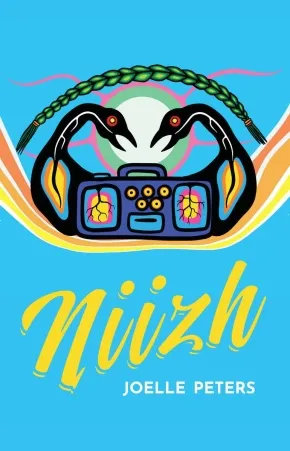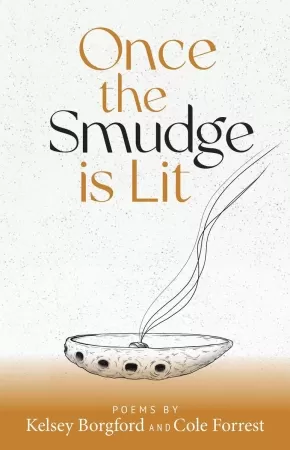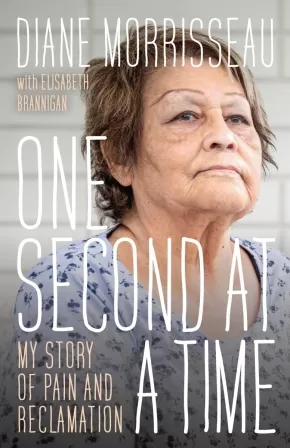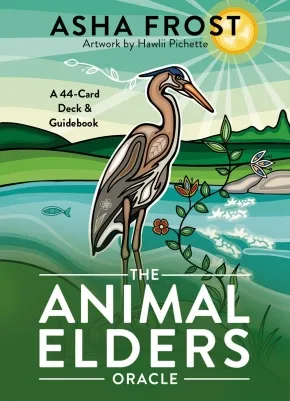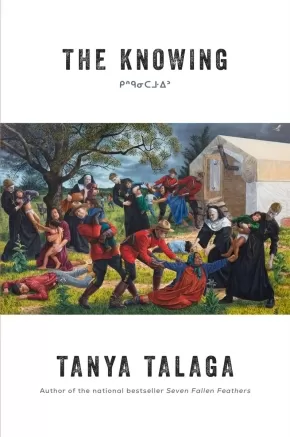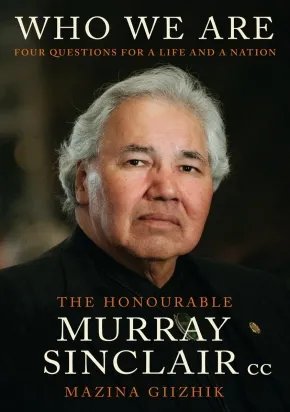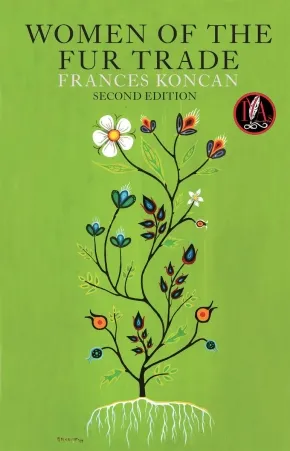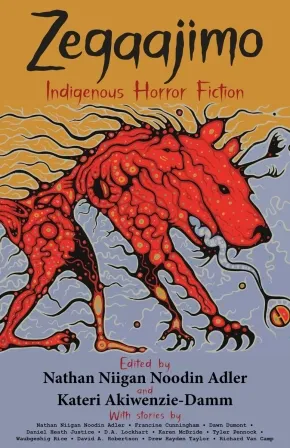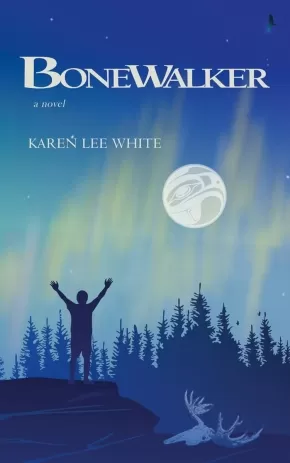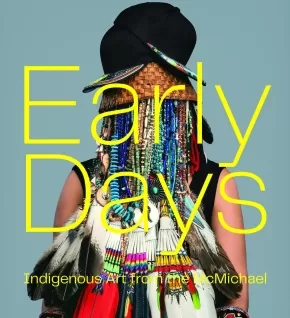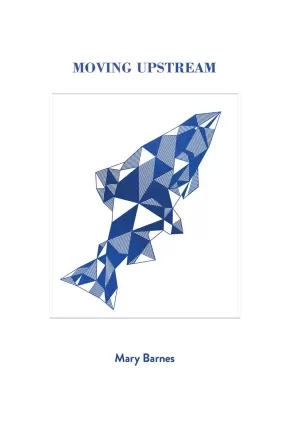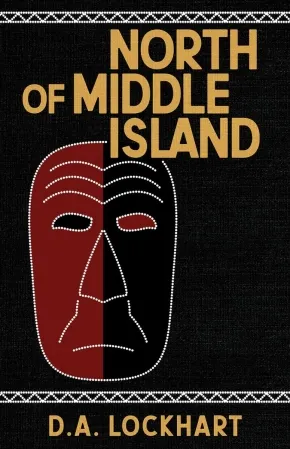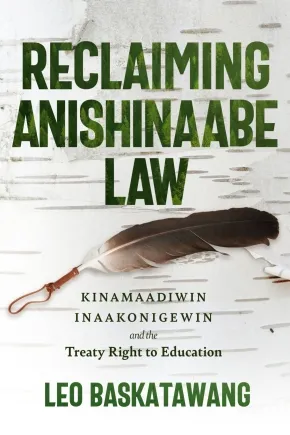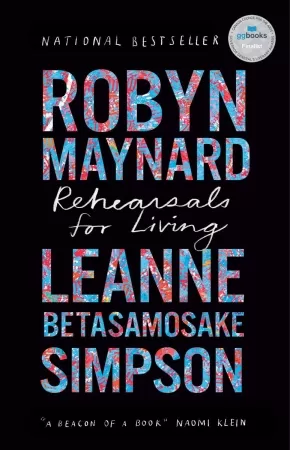
Ojibway (Ojibwe)
31
-
45
of
128 Results;
Sort By
Go To
of 9
Niizh
$18.95
Format:
Paperback
Text Content Territories:
Indigenous Canadian; First Nations; Anishinaabeg;
Reading Level: N/A
ISBN / Barcode: 9780369105219
Synopsis:
Synopsis:
It’s summertime on the rez. The frybread is sizzling, and the local radio station plays bluegrass, Anishinaabemowin lessons, and Friday-night bingo numbers. Lenna, the youngest of the Little family, is preparing to leave home for her first year of college, with little enthusiasm or help from her stubborn father and reckless brother. Amidst lingering doubts about departing the family flock, Lenna collides into a meet-cute with the charming and awkward Sam Thomas, who is returning to the reserve after many years away. With the promise of a romance budding between them, Lenna is caught in a whirlwind of uncertainty, wondering if she’s ready to bid farewell just as she's about to take flight.
Filled with Indigenous humour, small-town seasoning, and dream-world interludes, this heartwarming love story captures the bittersweet highs and lows of a rural teenage upbringing. A love letter to community, Niizh is a refreshing coming-of-age romcom about two young lovebirds leaving the nest.
Reviews
“In Niizh, Joelle Peters offers up a profound love and simultaneous longing for family and community. She stages generational strengths—humour, caring, and insightfulness—alongside generational wounds that can keep our dearest at arm’s length. This disarmingly simple story is artfully crafted with dialogue featuring a uniquely Peters-ian dry wit. Niizh is a celebration of the joys, beauties, and challenges of a young and fiercely capable Indigenous woman.” — Tara Beagan
“I was excited about this play the first time I read it. It's smart and funny, and it's exactly what we need right now.” — Keith Barker
“Joelle can write the rez. Conveying the history, the hardship, but, more than anything, the humour and the beauty of our complicated communities. And to see those spaces on stage is a powerful thing.” — Falen Johnson
“What's most satisfying is how many themes Peters layers into the script—including the loss of Indigenous language and culture, the fear of failure of those embarking on something new and, most poignantly, the shame and anger around abandonment.” — Glenn Sumi
Additional Information
112 pages | 5.40" x 8.35" | Paperback
Once the Smudge is Lit
$20.00
Artists:
Format:
Paperback
Text Content Territories:
Indigenous Canadian; First Nations; Anishinaabeg; Ojibway; Nipissing First Nation;
Reading Level: N/A
ISBN / Barcode: 9781928120407
Synopsis:
Synopsis:
Ceremony, community and connection - the poems of Once the Smudge is Lit carry the reader into deeply spiritual elements of Nishnaabe/Ojibwe culture. Co-written by Cole Forrest and Kelsey Borgford, the poetry of Once the Smudge is Lit highlights the Indigenous experience in post-colonial times through explorations of themes ranging from love to community. Bogford's and Forrest's verses seek to open a multidimensional window into the experience of being a contemporary Nishaabe. A profound sense of movement, connection, and continuity is emphasized by Tessa Pizzale's beautifully evocative illustrations, which include a line of smudge smoke that flows from page to page from beginning to end.
Additional Information
50 pages | 5.50" x 8.50" | 50 Illustrations | Paperback
One Second at a Time: My Story of Pain and Reclamation
$24.95
Format:
Paperback
Text Content Territories:
Indigenous Canadian; First Nations; Anishinaabeg; Sagkeeng;
Reading Level: N/A
ISBN / Barcode: 9780774880978
Synopsis:
Synopsis:
Bullied and abused at the Fort Alexander Indian Residential day school, Diane Morrisseau fought back and left school at the age of fifteen. Despite her strength, a childhood of trauma and abuse led her into the arms of Edgar Olson, and by sixteen, the young Ojibway-Anishinabe woman had given birth to her first child and married the man who would become her tormentor for the next eighteen years.
For almost two decades, Diane Morrisseau was chained to a brutal husband who abused not only her, but their children. By threatening Diane with their death and hers should she ever try to leave, he ensured that she would continue to endure his cruelty. Notoriously violent, her abuser was aided and abetted by the systems of colonialism that failed to protect Diane during her childhood. Edgar was able to keep Diane and her children trapped in a cycle of violence for years, without being held accountable by law or society.
Despite this, Diane found the strength to walk away. This book is the story of how she did so, and how she rebuilt a life beyond her abuser. Through Al-Anon, Anishinabe traditional healing ceremonies, counselling, and care for others, Diane found a new path illuminated by compassion and purpose.
Diane Morrisseau recounts her traumatic history with one aim: to help other victims of violence know they are not alone, and that escape is possible. The author’s entire career, and this book, testify to her desire to extend to others the hope that eluded her in the depths of her desperate circumstances.
Devastatingly frank about the abuse she suffered, the mothering her children missed because of it, and the systems that allowed it all to happen, Diane today has reconciled the past with a present where she continues to live out the values that matter to her most.
All royalties from sales of this book will be donated to Archway Community Services.
The story of an Ojibway-Anishinabe woman who, against incredible odds, rescued herself and her children from a life of brutal beatings, sexual servitude, and almost unimaginable hardship.
Reviews
"Selected as one of the most anticipated feminist books of 2024."— Ms. Magazine
"A courageous and harrowing story. Morrisseau uses her painful personal journey to frame the horrific history of residential schools. Evocative and illuminating."
— Angela Sterritt, author of Unbroken: My Fight for Survival, Hope, and Justice for Indigenous Women and Girls
"I is, in many ways, a difficult story to read – but it is one that needs to be told. Readers will learn about a courageous woman and the circumstances that enabled an abusive relationship, and hear her message for how to recognize the situation and take steps toward a better life."— Don McCaskill, co-author of In the Words of the Elders
"A fervent call to action, an impassioned plea for compassion and empathy, and a formidable rallying cry that seeks to instigate transformation [… One Second at a Time] serves as a bridge, seeking to connect human souls through shared understanding and collective responsibility."— From the foreword by Marlyn Bennett
"Raw and brutally honest. Morrisseau bravely shares the details of her life with a violent man. Validating and inspiring, her story affirms the complicated healing journey of abuse survivors. It’s a must read for anyone working in the field of gender-based violence."— Kendra Nixon, director of Research and Education for Solutions to Violence and Abuse (RESOLVE)
"Diane Morrisseau has taken us into her confidence with her story, allowing us to truly understand as a society how the relationship between Indigenous people and settlers has created immense hardships for Indigenous people, families, and communities."— Marion Maar, professor, Northern Ontario School of Medicine University
Educator Information
All royalties from sales of this book will be donated to Archway Community Services.
Table of Contents
Foreword: A Tapestry of Truths / Marlyn Bennett
Preface
Prologue
A Note on the Text
1 A Perfect Home
2 Day School
3 Posting of the Bands
4 Mrs. Olson
5 Holes in the Walls
6 Breakdown
7 Scars
8 Breaking Free
9 Seeing the Trees
10 Freedom at Last
Acknowledgments
About the Authors
Additional Information
198 pages | 5.50" x 8.50" | Paperback
The Animal Elders Oracle: A 44-Card Deck & Guidebook of Indigenous Wisdom & Healing Medicine
$25.99
Artists:
Text Content Territories:
Indigenous Canadian; First Nations; Anishinaabeg; Ojibway;
Reading Level: N/A
ISBN / Barcode: 9781401978181
Synopsis:
Synopsis:
Tap into guidance from the animal spirit realm and connect to ancestral wisdom with this transformative 44-card deck and guidebook from Indigenous Medicine Woman and author of You Are the Medicine and The Sacred Medicine Oracle, Asha Frost.
Everything is interconnected. All of creation carries a spirit. Indigenous people have always had a sacred relationship with animals and treated them as honored elders. Animal beings in the spirit realm are part of our spiritual support team as allies and medicine keepers, ready to help, waiting to remind you of your humanity and deep connection to the natural world.
With 44 Elder Animals depicted in a richly detailed traditional Ojibway art style, each card carries its own unique medicine. This deck offers meaningful insights and messages to guide you on your path both from the universe and in the voice of an animal spirit guide from the lands of the Ojibway people—from Elder Artic Hare to Elder Wolf. Whether you're seeking clarity, healing, or a deeper connection to your ancestral lineage, these cards provide a bridge to the spirit world.
Use this deck your rituals and ceremonies, do readings with it for your clients and friends, and share it with your communities. As the medicine ripples out, hold Indigenous people in your heart and honor how their history continues to impact your current reality.
Additional Information
128 pages | 3.50" x 5.00" | Card Deck & Guidebook
The Dialogues: The Song of Francis Pegahmagabow
$22.00
Format:
Paperback
Text Content Territories:
Indigenous Canadian; First Nations; Anishinaabeg; Ojibway; Wasauksing First Nation;
Reading Level: N/A
ISBN / Barcode: 9781989496916
Synopsis:
Synopsis:
In The Dialogues: The Song of Francis Pegahmagabow, award-winning author Armand Garnet Ruffo brings to life not only the story of the famed WWI Indigenous sniper, but also the complexities of telling Indigenous stories. From Manitoulin Island to the trenches of WWI to the stage, Ruffo moves seamlessly through time in these poems, taking the reader on a captivating journey through Pegahmagabow’s story and onto the creation of Sounding Thunder, the opera based on his life. Throughout, Ruffo uses the Ojibwe concept of two-eyed seeing, which combines the strengths of western and Indigenous ways of knowing, and invites the reader to do the same, particularly through the inclusion of the Anishinaabemowin language within the collection. These are poems that challenge western conventions of thinking, that celebrate hope and that show us a new way to see the world.
Additional Information
120 pages | 6.00" x 9.00" | Paperback
The Knowing
$39.99
Format:
Hardcover
Text Content Territories:
Indigenous Canadian; First Nations; Anishinaabeg; Ojibway; Inuit; Métis;
Reading Level: N/A
ISBN / Barcode: 9781443467506
Synopsis:
Synopsis:
From Tanya Talaga, the critically acclaimed and award-winning author of Seven Fallen Feathers, comes a riveting exploration of her family’s story and a retelling of the history of the country we now call Canada
For generations, Indigenous People have known that their family members disappeared, many of them after being sent to residential schools, “Indian hospitals” and asylums through a coordinated system designed to destroy who the First Nations, Métis and Inuit people are. This is one of Canada’s greatest open secrets, an unhealed wound that until recently lay hidden by shame and abandonment.
The Knowing is the unfolding of Canadian history unlike anything we have ever read before. Award-winning and bestselling Anishinaabe author Tanya Talaga retells the history of this country as only she can—through an Indigenous lens, beginning with the life of her great-great grandmother Annie Carpenter and her family as they experienced decades of government- and Church-sanctioned enfranchisement and genocide.
Deeply personal and meticulously researched, The Knowing is a seminal unravelling of the centuries-long oppression of Indigenous People that continues to reverberate in these communities today.
Additional Information
480 pages | 6.12" x 9.25" | Hardcover
Who We Are: Four Questions For a Life and a Nation (HC) (2 in Stock)
$39.95
Format:
Hardcover
Text Content Territories:
Indigenous Canadian; First Nations; Anishinaabeg; Ojibway;
Reading Level: N/A
ISBN / Barcode: 9780771099106
Synopsis:
Synopsis:
Judge, senator, and activist. Father, grandfather, and friend. This is Murray Sinclair’s story—and the story of a nation—in his own words, an oral history that forgoes the trappings of the traditional written memoir to center Indigenous ways of knowledge and storytelling. As Canada moves forward into the future of reconciliation, one of its greatest leaders guides us to ask the most important and difficult question we can ask of ourselves: Who are we?
For decades, Senator Sinclair has fearlessly educated Canadians about the painful truths of our history. He was the first Indigenous judge in Manitoba, and only the second Indigenous judge in Canadian history. He was the Chair of the Truth and Reconciliation Commission, and remains one of the foremost voices on Reconciliation. And now, for the first time, he will share his full story—and his full vision for our nation—with readers across Canada.
Drawing on Senator Sinclair’s unique experiences, and his perspectives regarding Indigenous identity, human rights, and justice in Canada, Who We Are will examine the roles of history, resistance, and resilience in the pursuit of finding that path forward, and healing the damaged relationship between Indigenous Peoples and non-Indigenous peoples in Canada. And in doing so, it will reveal Senator Sinclair’s life in a new and direct way, exploring how all of these experiences shaped him as an Anishinaabe man, father, and grandfather.
Structured around the four questions that have long shaped Senator Sinclair’s thinking and worldview—Where do I come from? Where am I going? Why am I here? Who am I?—Who We Are will take readers into the story of his remarkable life as never before, while challenging them to embrace an inclusive vision for our shared future.
Additional Information
480 pages | 6.00" x 9.00" | Hardcover
Women of the Fur Trade - 2nd Edition
$19.95
Format:
Paperback
Text Content Territories:
Indigenous Canadian; Métis; First Nations; Anishinaabeg; Ojibway;
Reading Level: N/A
ISBN / Barcode: 9780369105158
Synopsis:
Synopsis:
In eighteen hundred and something something, somewhere upon the banks of a Reddish River in Treaty One Territory, three very different women with a preference for twenty-first century slang sit in a fort sharing their views on life, love, and the hot nerd Louis Riel.
Marie-Angelique, a Metis Taurus, is determined to woo Louis (a Metis Libra)—who will be arriving soon—by sending him boldly flirtatious letters. Eugenia, an Ojibwe Sagittarius, brings news of rebellion back to the fort after trading, but isn’t impressed by Louis’s true mediocre nature. And Cecilia, a pregnant British Virgo, is anxiously waiting on her husband’s return from an expedition, but can’t resist pining over the heartthrob Thomas Scott (Irish Capricorn), who is actually the one secretly responding to Marie-Angelique’s letters. This will all go smoothly, right?
This lively historical satire of survival and cultural inheritance shifts perspectives from the male gaze onto women’s power in the past and present through the lens of the rapidly changing world of the Canadian fur trade.
Awards
- 2023 Indigenous Voices Award for Published Prose in English
- 2018 Toronto Fringe Best New Play Contest winner
- 2024 Dora Mavor Moore Award for Outstanding New Play
Reviews
“Not only is the play a fun and clever look at the province’s history, but by weaving in modern slang and references, Koncan (who is of Anishinaabe and Slovene descent) highlights how many Indigenous issues from our past are still relevant today.” — Stephanie Cram, CBC News
“A timely, provocative piece of theatre written from a perspective and voice we need to hear.”— Ian Ross, Winnipeg Free Press
Additional Information
120 pages | 5.32" x 8.35" | 2nd Edition | Paperback
Zegaajimo: Indigenous Horror Fiction
$28.00
Format:
Paperback
Text Content Territories:
Indigenous Canadian;
Reading Level: N/A
ISBN / Barcode: 9781928120445
Synopsis:
Synopsis:
A brand-new, spine-chilling collection of horror/thriller fiction, Zegaajimo, Anishinaabemowin for "to tell a scary story," includes stories from eleven leading First Nations and Metis authors from across the territories of Canada: Nathan Niigan Noodin Adler, Dawn Dumont, Daniel Heath Justice, D.A. Lockhart, Karen McBride, Tyler Pennock, Waubgeshig Rice, David A. Robertson, Drew Hayden Taylor, and Richard Van Camp.
Many of the stories draw on Traditional Stories. These stories of supernatural settings and deadful dees are more than speculative fiction, they are also reminders that monsters are already in our midst, that the known can be just as frightening as the unknown, and that the slightest mistakes can have dire consequences.
The collection is co-edited by Nathan Niigan Noodin Adler and Kateri Akiwenzie-Damm. Thrilling horror, Indigenous-style, perfect for Halloween!
Additional Information
230 pages | 5.50" x 8.50" | Paperback
Bonewalker: A Novel
$28.95
Format:
Paperback
Text Content Territories:
Indigenous;
Reading Level: N/A
ISBN / Barcode: 9781990773228
Synopsis:
Synopsis:
Krie Redsky is an extraordinary Indigenous child who has both a curse and blessing that allows him to walk between this world and the Spirit Realm. He is also at an age where he is learning to cope with the twists and turns of friendships, the awkwardness of first love, and the self-doubt that must be overcome following loss and betrayal. But, nurtured by Knowledge Keepers as “one who is without fear, and with the ability to cross realities,” he is soon recognized as an individual who can – and will – battle the terrifying ancient spirit stealers known as Bonewalkers. But is he strong enough for what is to come?
Additional Information
236 pages | 5.50" x 8.50" | Paperback
Early Days: Indigenous Art from the McMichael
$70.00
Artists:
Format:
Hardcover
Text Content Territories:
Indigenous Canadian;
ISBN / Barcode: 9781773272337
Synopsis:
Synopsis:
A landmark publication bringing together more than seventy voices illuminating the rich array of Indigenous art held by the McMichael Canadian Art Collection.
Under the editorial direction of Anishinaabe artist and scholar Bonnie Devine, Early Days gathers the insights of myriad Indigenous cultural stakeholders, informing us on everything from goose hunting techniques, to the history of Northwest Coast mask-making, to the emergence of the Woodland style of painting and printmaking, to the challenges of art making in the Arctic, to the latest developments in contemporary art by Indigenous peoples from across Turtle Island.
Splendidly illustrated, Early Days not only tells the story of a leading collection but also traces the emergence and increasing participation of many Indigenous artists in the contemporary art world. This publication will be the largest in the history of the McMichael, and represents a vital acknowledgment of the place of Indigenous art and ways of knowing in global art history.
Featured contributors: Barry Ace, Leland Bell, Dempsey Bob, Christian Chapman, Violet Chum, Hannah Claus, Dana Claxton, Jisgang Nika Collison, Alan Corbiere, Marcia Crosby, Ruth Cuthand, Mique'l Dangeli, Joe David, Sarah Davidson, Robert Davidson, Bonnie Devine, Tarralik Duffy, Norma Dunning, David Garneau, John Geoghegan, Janice Grey, Haay'uups (Ron Hamilton), Jim Hart, Emma Hassencahl-Perley, Emily Henderson, Lynn A. Hill, Richard Hill, Maria Hupfield, Jaimie Isaac, Heather Igoliorte, Luis Jacob, Gayle Kabloona, William Kingfisher, Jessica Kotierk, Robin Laurence, Duane Linklater, Ange Loft, Tanya Lukin Linklater, Jean Marshal, Michael Massie, Gerald McMaster, Ossie Michelin, Sarah Milroy, Antoine Mountain, Nadia Myre, Jeneen Frei Njootli, Ruth Phillips, Jocelyn Piirainen, Ryan Rice, Carmen Robertson, Paul Seesequasis, Leanne Betasamosake Simpson, Wedlidi Speck, Clyde Tallio, Drew Hayden Taylor, Nakkita Trimble-Wilson, Jesse Tungilik, Camille Georgeson Usher, William Wasden Jr., Jordan Wilson, Jessica Winters.
Additional Information
400 pages | 11.00" x 10.00" | 200 Colour Photographs | Hardcover
Moving Upstream
$24.95
Format:
Paperback
Text Content Territories:
Indigenous Canadian; First Nations; Anishinaabeg; Ojibway;
Reading Level: N/A
ISBN / Barcode: 9781988168982
Synopsis:
Synopsis:
Drawing on her Ojibwa roots and storytelling, Barnes shares stories that take the heart on the path to the past, nostalgic though it may be, wherein lies discovery, memories, and rhythms that ease the soul. Touching, tender but never overwrought, Barnes' poetry brings wonder to the spirit of nature and provides a sense of connection to the things most often overlooked.
Additional Information
140 pages | 7.50" x 5.00" | Paperback
North of Middle Island
$17.95
Format:
Paperback
Text Content Territories:
Indigenous Canadian; First Nations; Anishinaabeg; Ojibway; Chippewas of the Thames ;
Reading Level: n/a
ISBN / Barcode: 9781928120377
Synopsis:
Synopsis:
Journey to the southernmost tip of the territories held by Canada. North of Middle Island opens with a collection of individual poems that capture the spirit of the relatively isolated, sparsely populated community of Pelee Island.
The pieces explore contemporary Indigenous experience in the natural and built environments of the island and surrounding waters. The book concludes with an epic, "rarely true" narrative of modern-day warriors, told in traditional Anglo-Saxon style-a new Lenape myth of how Deerwoman (Ahtuhxkwe) comes to Pelee Island. The events of this epic tale are loosely based on the infamous professional wrestler and actor Rowdy Roddy Piper's time on the island and Wrestlemania XII, Piper's notorious "Backlot Brawl" with fellow wrestler Goldust (Nkuli Punkw). Follow acclaimed Moravian of the Thames First Nation poet D.A. Lockhart on this lyrical, epic journey into the unique culture and landscapes that lie just North of Middle Island.
Additional Information
93 pages | 5.50" x 8.50"
Reclaiming Anishinaabe Law: Kinamaadiwin Inaakonigewin and the Treaty Right to Education
$27.95
Format:
Paperback
Text Content Territories:
Indigenous Canadian; First Nations; Anishinaabeg;
Grade Levels: University/College;
ISBN / Barcode: 9781772840254
Synopsis:
Synopsis:
A manifesto for the future of Indigenous Education in Canada
In Reclaiming Anishinaabe Law Leo Baskatawang traces the history of the neglected treaty relationship between the Crown and the Anishinaabe Nation in Treaty #3, and the Canadian government’s egregious failings to administer effective education policy for Indigenous youth—failures epitomized by, but not limited to, the horrors of the residential school system.
Rooted in the belief that Indigenous education should be governed and administered by Indigenous peoples, Baskatawang envisions a hopeful future for Indigenous nations where their traditional laws are formally recognized and affirmed by the governments of Canada. Baskatawang thereby details the efforts being made in Treaty #3 territory to revitalize and codify the Anishinaabe education law, kinamaadiwin inaakonigewin. Kinamaadiwin inaakonigewin considers education wholistically, such that it describes ways of knowing, being, doing, relating, and connecting to the land that are grounded in tradition, while also positioning its learners for success in life, both on and off the reserve.
As the backbone of an Indigenous-led education system, kinamaadiwin inaakonigewin enacts Anishinaabe self-determination, and has the potential to bring about cultural resurgence, language revitalization, and a new era of Crown-Indigenous relations in Canada. Reclaiming Anishinaabe Law challenges policy makers to push beyond apologies and performative politics, and to engage in meaningful reconciliation practices by recognizing and affirming the laws that the Anishinaabeg have always used to govern themselves.
Reviews
"Leo Baskatawang offers a passionate call for Indigenous self-determination and a reclamation of Anishinaabe education law and practice in raising up the next generation. This book can be used to envision a future that uses Indigenous treaties to drive systemic change in education."— Brittany Luby
"This book effectively weaves many sources to show how the revitalization of Anishinaabe law supports the resurgence of Anishinaabe education. It is nourishing food for thought." — John Borrows
Additional Information
240 pages | 6.00" x 9.00" | b&w illustrations, maps, index, bibliography | Paperback |
Rehearsals for Living (PB)
$23.00
Format:
Paperback
Text Content Territories:
Indigenous Canadian; First Nations; Anishinaabeg; Mississauga; Alderville First Nation;
Reading Level: n/a
ISBN / Barcode: 9781039000674
Synopsis:
Synopsis:
A revolutionary collaboration about the world we're living in now, between two of our most important contemporary thinkers, writers and activists.
When the world entered pandemic lockdown in spring 2020, Robyn Maynard, influential author of Policing Black Lives, and Leanne Betasamosake Simpson, renowned artist, musician, and author of Noopiming: The Cure for White Ladies, began writing each other letters—a gesture sparked by a desire for kinship and connection in a world shattering under the intersecting crises of pandemic, police killings, and climate catastrophe. These letters soon grew into a powerful exchange about where we go from here.
Rehearsals for Living is a captivating and visionary work—part debate, part dialogue, part lively and detailed familial correspondence between two razor-sharp writers. By articulating to each other Black and Indigenous perspectives on our unprecedented here and now, and reiterating the long-disavowed histories of slavery and colonization that have brought us to this moment, Maynard and Simpson create something new: an urgent demand for a different way forward, and a poetic call to dream up other ways of ordering earthly life.
Reviews
“This book must be read for its future vocabularies, its political intimacies, its careful assemblage of the materials of our activisms, and its generous and fulsome thinking.”—Dionne Brand, poet, novelist, and essayist
“Using the age-old practice of letter writing and the land itself as a palimpsest, Robyn Maynard and Leanne Betasamosake Simpson find common ground to challenge the moral legitimacy of the settler nation state, and reinscribe new ways of what it means to be beings who are human in the forensic landscapes of Canada. In Rehearsals for Living, two women, one Indigenous, the other Black and African-descended confront their shared yet different experiences of colonialism, provide new and subversive meanings to the colonial trope of being landed, the mechanism by which the land was (un)settled. Unflinchingly, and in long-overdue and profoundly-needed “reasonings” that reverberate with shared breath, Simpson and Maynard weave their ideas, thoughts and reflections and their deep caring for community and society through the network of issues that impact us today—the pandemic and the differentials in treatment for Black and Indigenous people, the role of BLM, abolition, the necessity of Nibi and homespace for the Nishnaabeg, the joys of living on the land, and parenting in the face of ecological and racial disasters are but a few of the challenges they grapple with. Rehearsals for Living is fundamental to understanding the interlocking, founding crimes of the Americas; necessary for remembering the many erased histories of the on-going struggle for justice, and altogether indispensable to those wanting to create possible solutions.”—M. NourbeSe Philip, author of Zong!
Additional Information
336 pages | 5.17" x 7.99" | Paperback
Sort By
Go To
of 9

